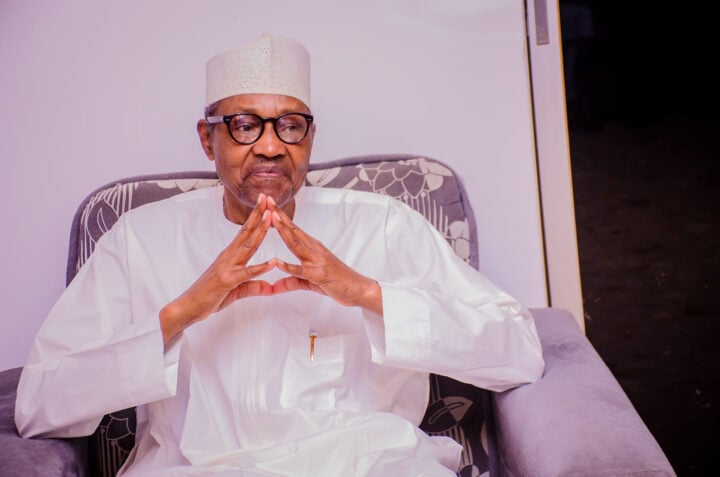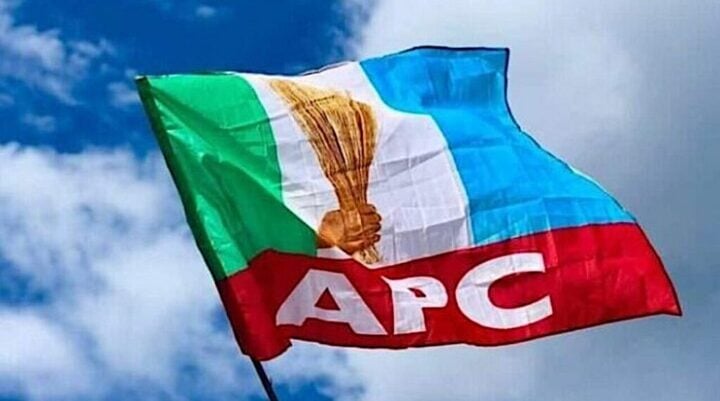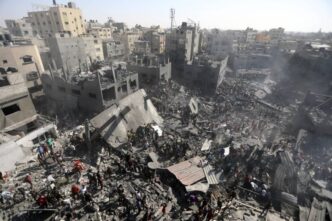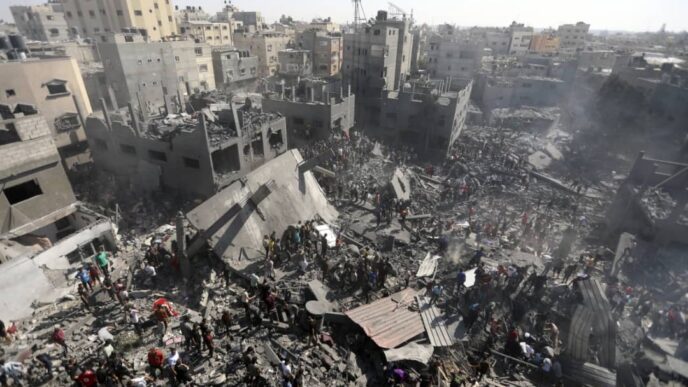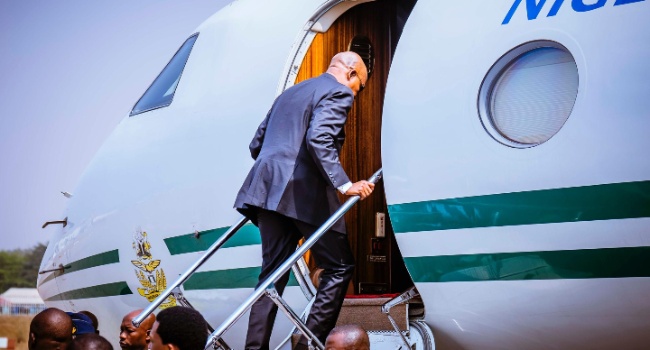Rejection is hard to accept, even more so from those who seem undeserving of the upper hand. For France and its former African colonies, this has led to bruised egos and impulsive actions that defy accountability.
To understand the depth of France’s roots in Africa, reference has to be made to the “Scramble for Africa” in the late 19th century, which saw European powers, including France, rapidly expand their territories. The Berlin Conference of 1884-1885 formalised this partitioning, allowing France to annex vast areas in West Africa, including present-day Senegal, Mali, Burkina Faso, Benin, Guinea, Ivory Coast, and Niger Republic.
During this period, French policies were driven by economic interests, focusing on resource extraction and agricultural production. The imposition of heavy taxes and forced labour systems led to widespread dissatisfaction among local populations, as they were often exploited for their labour without adequate compensation or support.
Discontent began to manifest more visibly after World War I. The war had significant implications for colonial subjects; many Africans served in the French army but returned home with heightened expectations for rights and representation. Little of this was met.
Advertisement
A similar pattern followed World War II as notable shifts in attitudes towards colonial rule began to spread. By the late 1950s, widespread protests and uprisings were triggered across French West Africa, culminating in a wave of independence movements.
Naturally, France backed off and could only play its hands on its former colonies from faraway Europe. Successes were recorded in some areas, like economic interventions, while other cultural tactics to ingrain France back into the hearts of citizens did not yield much fruit.
“Universally, a colonial policy can only have negative effects on those who suffer from it,” Barry Diawadou, a geopolitics and diplomacy expert based in Guinea, told TheCable.
Advertisement
“Colonisation consists of the domination of a culture, of a system of thoughts over another culture. From this postulation, which defines the reality of the phenomenon, no form of colonisation can have positive impacts, especially when we add time and demographic factors.
“French-speaking countries tend to compare French colonisation to English, German, Portuguese, Spanish, and Dutch colonisation in Africa. From these comparisons, a trend emerges which establishes that French colonisation was the least successful in Africa.
“For example, in the concert of economic nations, apart from the French-speaking countries of the Maghreb, the most dynamic African economies remain the English-speaking countries.”
Diawadou said the relationship France had with its former territories was almost parasitic.
Advertisement
It was only a matter of time before the scales tipped against one of Europe’s strongest economies.
MACRON IN, ‘TERRORISM OUT’
France arguably maintained its distance in the face of the growing discontent, but not for long. Islamist militant groups began threatening the stability of the Sahel region, notably after the 2011 Arab Spring, with significant developments occurring in subsequent years. The Arab Spring was a wave of pro-democracy protests and uprisings that began in December 2010 and spread across the Middle East and North Africa.
Soon, armed groups began to spread terror in the Sahel, killing hundreds and displacing thousands. Their sophisticated weapons were no match for armed forces maintained under weak budgets.
Advertisement
The incursion saw Mali turn to France for help to combat the terrorists, with the primary goal of regaining control over territory and preventing further advances towards Bamako, the capital. France launched Operation Serval in January 2013 to achieve this.
Following the success of Operation Serval, which concluded in July 2014, France expanded its military presence in the region through Operation Barkhane, which commenced on August 1, 2014. This operation aimed to provide ongoing support to five Sahelian countries — Mali, Burkina Faso, Niger, Chad, and Mauritania — collectively known as the G5 Sahel.
Advertisement
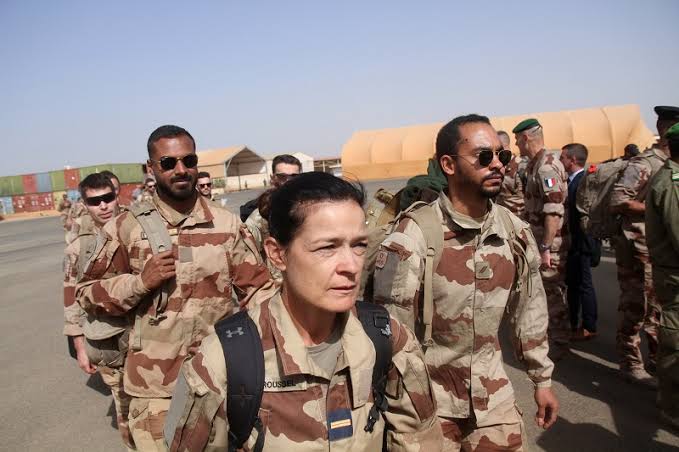
“France’s military presence was effective. It is not demeaning to recognise this,” Diawadou added.
Advertisement
“For a very long time, it was able to deter rebel attacks, intrusion, and the proliferation of armed groups in these former colonies. But it is true that with the implosion of Libya and the resulting circulation of weapons in the Sahelio-Saharan strip, terrorist incursions have literally reached their peak.”
Initially, French operations were welcomed, but as insecurity persisted and public dissatisfaction with local governments grew, many began to associate France with ineffective governance and continued violence.
Advertisement
The military juntas that came to power in Mali, Burkina Faso, and Niger Republic often used anti-French rhetoric to legitimise their rule, portraying France as complicit in the failures of previous administrations. They framed their actions as a rejection of both corrupt leadership and foreign interference, particularly targeting France for its perceived role in perpetuating instability through its military presence. France’s condemnation of the coups and a demand that democracy return did not sit well with the junta leaders.
Soon, they began to eject French troops out of their countries, starting with Mali, which first sought the European country’s help, then to Burkina Faso, Niger, Chad. They turned to Russia and China for military and economic cooperation.
FAR-RIGHT POLITICAL IDEOLOGIES COMPOUNDING MATTERS
Late last year, Senegal and Ivory Coast, both democratic nations, joined the growing list of former French territories snipping ties with France after they announced in November their plans to expel French troops.
The announcement came as a shock considering that the countries did not have a “solid reason”, such as growing coups or worsening Islamist militants in their nations.
Diawadou explained that the discontent grew from the growing far-right politics in France and its ideologies.
Diery Diagne, a journalist and disinformation researcher in Senegal, affirmed Diawadou’s position.
“The Senegalese are more and more developing sentiments of rejecting France,” Diagne told TheCable.
“Senegalese citizens are open to collaboration with all countries. But they want to see on the part of the partners that they respect the interest of Senegal,” she added, noting that Senegal’s turn away from France is to seek a “win-win” collaboration.
In many African nations, political movements have historically leaned towards leftist ideologies that emphasise socialism or anti-imperialism. Leaders often advocate for national sovereignty, economic independence from former colonial powers, and social equity.
Far-right parties, on the other hand, often emphasise nationalism, advocating for strict immigration controls and prioritising the interests of native populations over immigrants.
With far-right politics emerging in France, particularly under the leadership of parties like the National Rally, a sharp discontent is stemming from concerns over the implications of immigration policies, human rights, and France’s historical relationships with its former colonies.
“Some cooperation agreements, particularly in economic matters, are considered far too unbalanced and not to the advantage of African countries,” Diawadou said.
“As examples, there are big gaps with the following topics: the purchase price of raw material, the local content issue, technology transfer, and the revenue sharing between partners.
“If you add the political climate in France and the feelings of Africans who feel rejected and deprived of their most basic rights in their quest to obtain housing and a job in France, you will easily understand why many Africans no longer believe in the French model and privileged cooperation with France.
“Every day, African civil society observes and notes the decline in the rights of their peers in France, not only through the international media and certain French media, which clearly display their political positioning, but also through the stories of Africans on social networks.”
MACRON WIDENS DISTANCE WITH ‘UNGRATEFUL’ COMMENTS
While the rejection ripple has continued to spread, Macron has refused to take the hit.
In a speech to French ambassadors gathered at the Elysee Palace, the president described Sahelian leaders as ungrateful.
He said France was right in 2013 for its intervention to fight Islamist militants “even if those same states had now moved away from French military support”.
The French president dismissed the notion that his country had been kicked out of the Sahel region, insisting that France left after citizens decided that they no longer wanted to prioritise combating terrorism.
“France no longer belonged there because we are not at the beck and call of coup leaders,” he added.
He said Sahelian leaders forgot to thank France for combatting terrorism but expressed optimism that one day it would come.
Nina Wilen, an analyst at the Belgian Egmont Royal Institute for International Relations, said Macron’s remarks were likely a strategic error.
“It’s hard to know whether these are thought-through comments.” Wilen said, “or whether it’s something that he wants to get out there because he feels that it’s the correct thing to do.”
“But, for sure, there are quite a few French officials and military officers who are working hard to shed the image that France has in Africa as an arrogant former colonial power.
“Comments like these made by Macron really undermine their efforts in doing this.”



